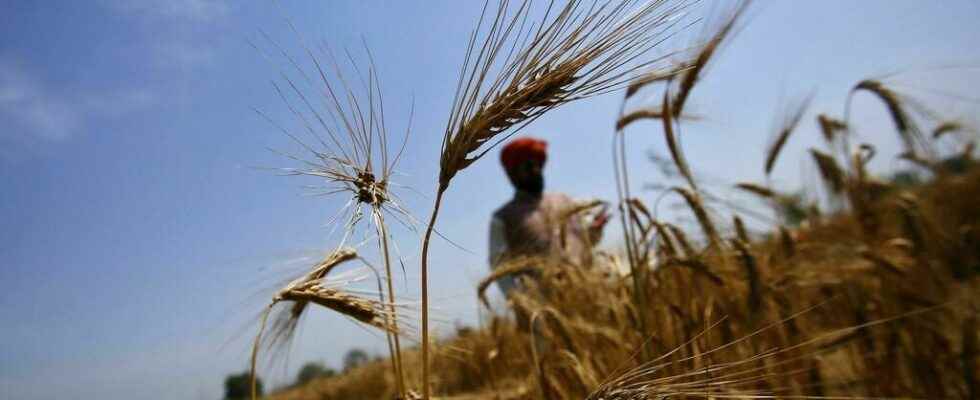Two months after the ban on wheat exports, the Indian authorities have just announced that they will also restrict those of flour, in order to prevent wheat from escaping the country in this form.
For the past two months, monthly wheat flour exports have exploded: they are about ten times higher than last year at the same period, reports our correspondent in New Delhi, Sebastien Farcis. This worries the authorities, because it would mean that the wheat, banned from sale abroad since May, would in fact be converted into flour to be exported to international markets where these cereal products are sold at higher prices than in India.
► To read also: Drought-hit India bans all wheat exports
Fear of domestic market shortages
From next Tuesday, July 12, any new export of flour will therefore be subject to authorization. The restrictions are not as severe as for raw wheat, but this will allow the government to regulate the flow and prevent this food from escaping too quickly abroad, and causing shortages. local and therefore inflation.
India is the 2nd producer of wheat, but also the 2nd consumer of this cereal, and food inflation was 8% last April, twice as high as last year’s average. Last year, the country of nearly 1.4 billion people enjoyed a fairly bumper wheat harvest, producing 109 million tonnes of wheat, of which around seven million tonnes were exported. This year, a strong heat wave in March and April led to a drop of around 5% in the Indian wheat harvest, raising fears of shortages on the domestic market. For their part, Russia and Ukraine together account for almost a quarter of the world’s wheat supply.
► To listen also: Blocking Ukrainian grain exports: “Wheat is a major geopolitical weapon”
